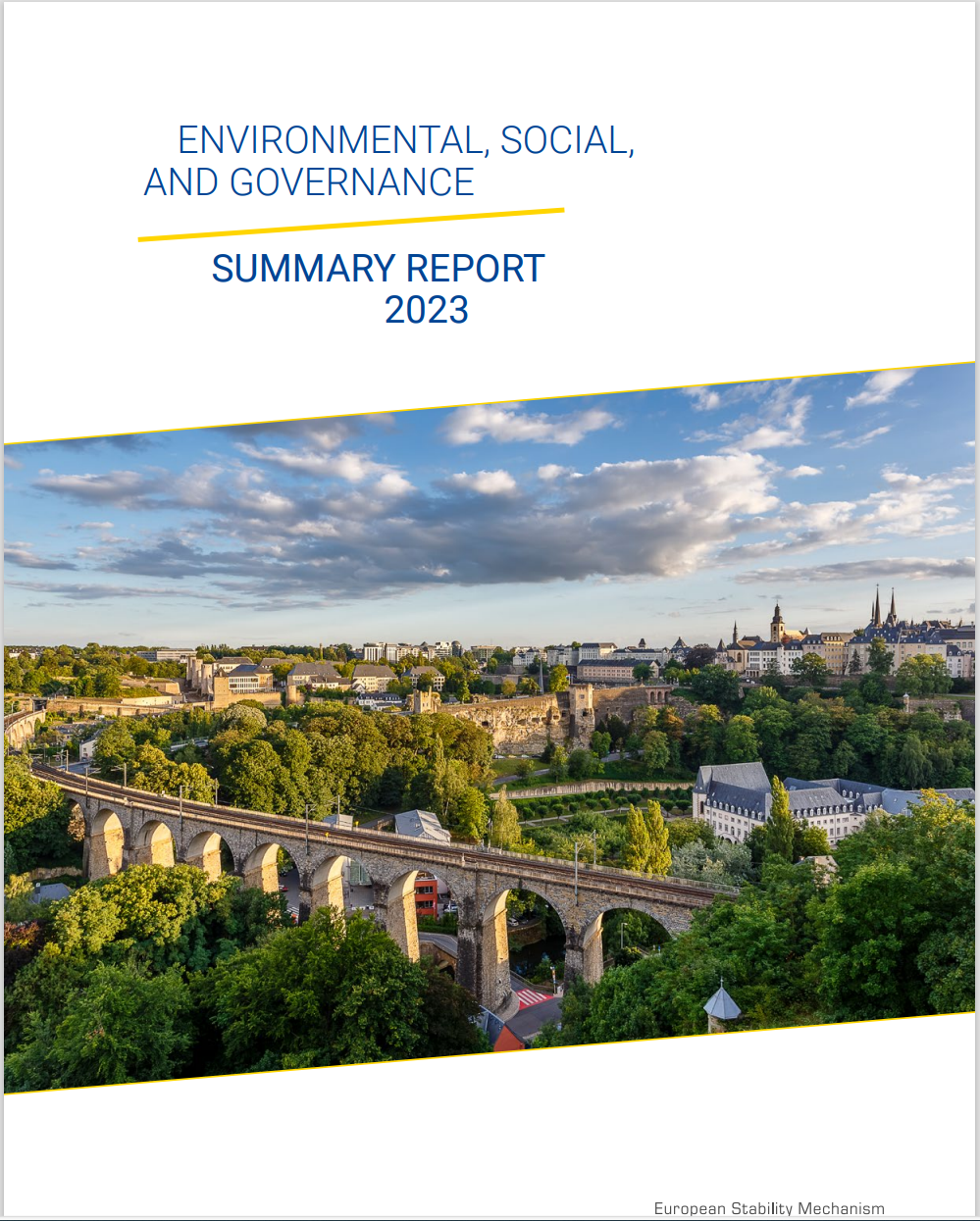Message from the Managing Director
It is with great pleasure that I introduce our second edition of the European Stability Mechanism (ESM) summary report on environmental, social, and governance (ESG) activities.
Climate change has been ranked one of the top 10 key risks for the next two years by the World Economic Forum. Therefore, the merits and urgency of ESG topics are key. Despite the challenging credit market conditions in 2023, worldwide issuance of green, social, sustainable, and sustainability-linked bonds totalled USD939 billion for the year, an increase of 3% compared to 2022.
The euro remains the dominant currency for ESG bond issues and represents close to 50% of the total ESG debt issued in 2023.
Even without the Covid-19 pandemic of 2020 or the current challenges to traditional sources of energy, ESG initiatives are a positive driving force that should lead to significant improvements in our societies. Without a sustainable economy, citizens’ prosperity and financial stability are at risk.
The ESM continued to innovate and develop its ESG credentials in 2023. For the last 12 years, the ESM’s mission has been to help guarantee financial stability in the euro area. In 2023, climate change and social and governance conditions remained important challenges we at the ESM both face and on which we focus our attention.
The ESM published the ESG scores for its assets, including investments and loans, for the first time in last year’s summary report. This year’s report includes the ESG scores for both the ESM and European Financial Stability Facility (EFSF) balance sheets, as well as a historical perspective for our loans’ ESG scores.
The release of the ESM’s first transparency report by the United Nations (UN)-backed Principles for Responsible Investment marked another milestone in 2023. This report underscores our commitment to transparency, accountability, and responsible investment practices regarding the management of the ESM’s entire paid-in capital. It is an important step in our efforts to enhance our responsible investment approach.
Furthermore, the ESM has begun integrating climate risk considerations into its risk management framework, ensuring that sustainability becomes increasingly relevant to the institution’s analytical work.
As a part of efforts to integrate ESG considerations into our investment framework, the ESM has been monitoring the ESG score of its paid-in capital since 2022. I am delighted to report that the ESM maintained the highest rating possible for our investment portfolio, as assessed by Moody’s Vigeo Eiris. The ESM has also remained an active investor in ESG-labelled bonds with a total of €5.2 billion invested across green, social, and sustainable bonds at the end of 2023.
Witnessing the ESM's journey toward the integration of ESG considerations across the entire institution has been profoundly meaningful to me. As someone deeply devoted to fostering a more sustainable planet, I find great significance in the remarkable progress the ESM has made over the years. ESG principles have become an intrinsic part of the ESM's ethos, woven into its operational fabric.
Considering the growing interest from investors, policymakers, and the public in ESG matters, the objective of this report, in digital format of course, is to provide more insight into what the ESM is doing for Europe and the sustainability of our planet.
Pierre Gramegna
Managing Director, ESM
Chief Executive Officer, EFSF
